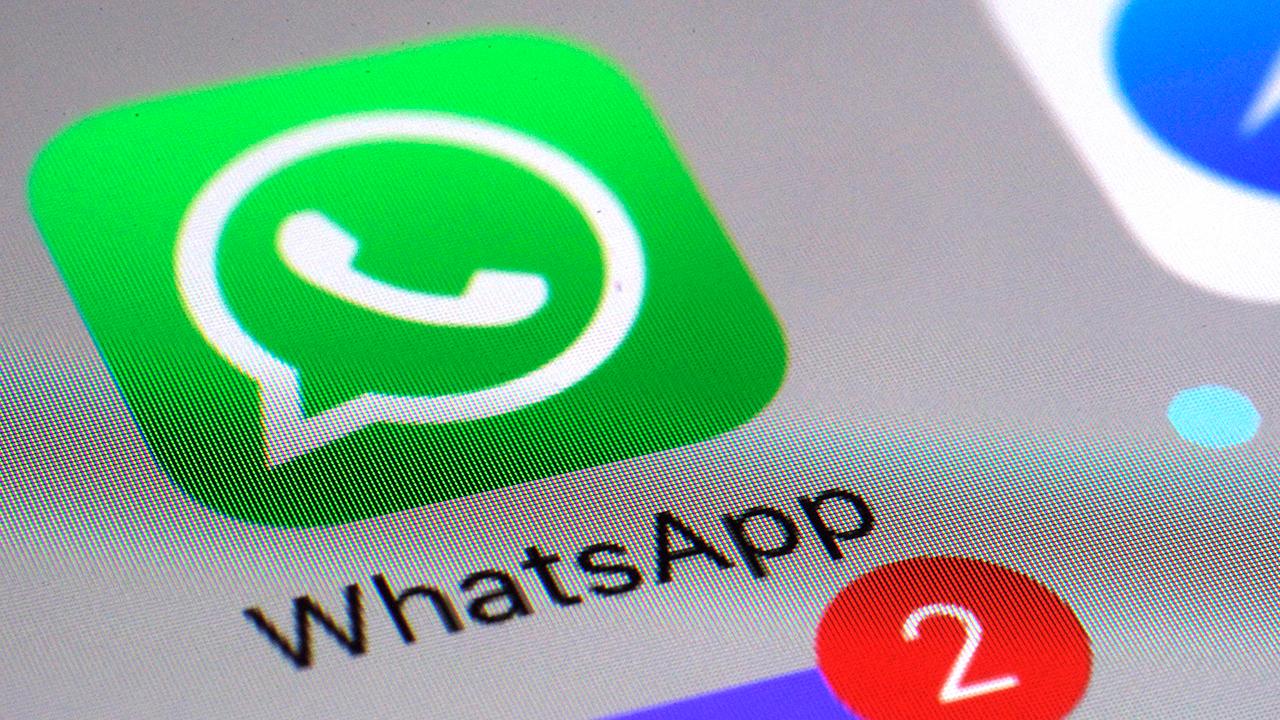WhatsApp used by more than 25% of the world
But only 20% of U.S. citizens actively used WhatsApp in 2019
More than 25 percent of the world's entire population uses the Facebook-owned WhatsApp, the messaging app announced Wednesday.
WhatsApp, which uses encryption technology so users can have private conversations that cannot be traced by third parties or WhatsApp engineers themselves, reached 2 billion users around the world Wednesday, the company said in a blog post.
"Private conversations that once were only possible face-to-face can now take place across great distances through instant chats and video calling," the company wrote. "There are so many significant and special moments that take place over WhatsApp and we are humbled and honored to reach this milestone."
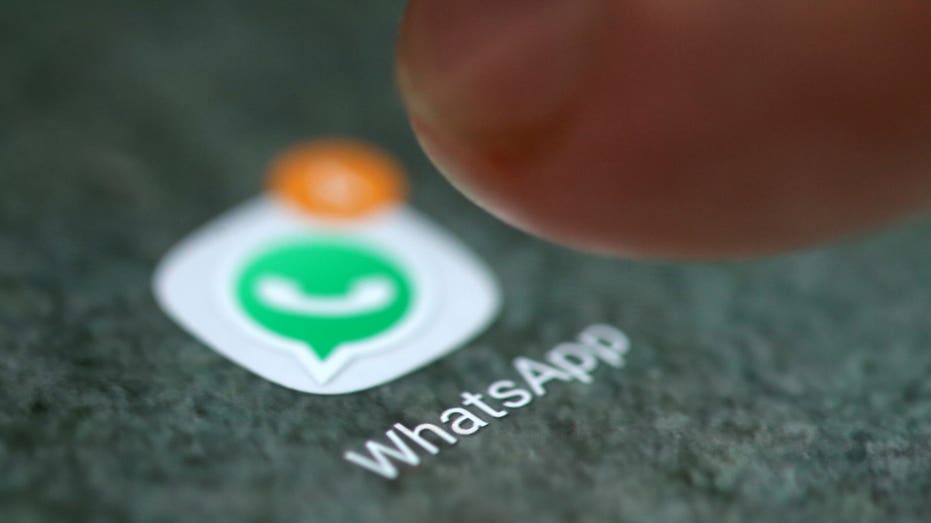
(REUTERS/Dado Ruvic/Illustration/File Photo)
Facebook, which has about 2.5 billion users, recognized the importance and potential global dominance of the encrypted messaging app when it bought WhatsApp for $19 billion --- one of the single largest tech company acquisitions in history --- in 2014.
FACEBOOK SUES ISRAELI COMPANY OVER WHATSAPP SPYWARE
But despite the fact that WhatsApp was developed by two Americans and later acquired by one of the United States' --- and the world's --- largest tech companies, only 20 percent of U.S. citizens actively used WhatsApp in 2019, down from 22 percent in 2018, according to an April 2019 study by the nonpartisan Pew Research Center.
Those who do use WhatsApp in the U.S. are mostly Latino Americans who use the app to contact relatives abroad.
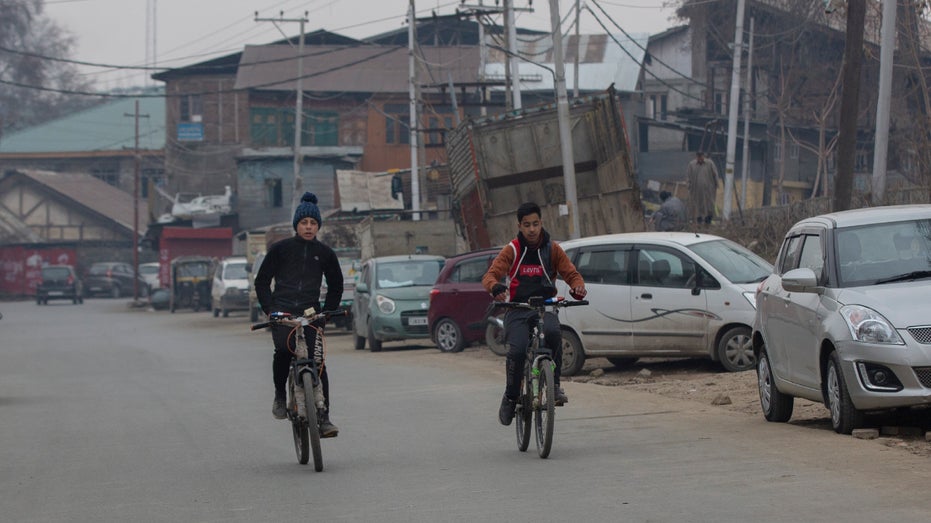
Kashmiri boys cycle through a deserted street during a strike on the death anniversary of separatist leader Maqbool Bhat in central Srinagar, Indian- controlled Kashmir, Tuesday, Feb. 11, 2020. (AP Photo/Dar Yasin)
Meanwhile, countries like India and Brazil have the highest number of active WhatsApp users. In India, where only half the country has access to internet service, 400 million people actively use WhatsApp for online messaging; in Brazil, 96 percent of residents have reported using WhatsApp. The app is also hugely popular in the Middle East and Europe.
WHATSAPP CO-FOUNDER CALLS HIMSELF ‘SELLOUT’ FOR $22B FACEBOOK DEAL
This discrepancy is due in part to the United States' cheap and convenient texting capabilities, which many developing nations did not have until years after the U.S. Smartphone users from these developing nations downloaded WhatsApp, completely free of charge, to message others rather than text, according to tech news site Digital Trends.
It is also due in part to the fact that citizens from countries outside the U.S. travel more frequently, on average, than Americans do. WhatsApp allows users to connect and even send payments from different countries.
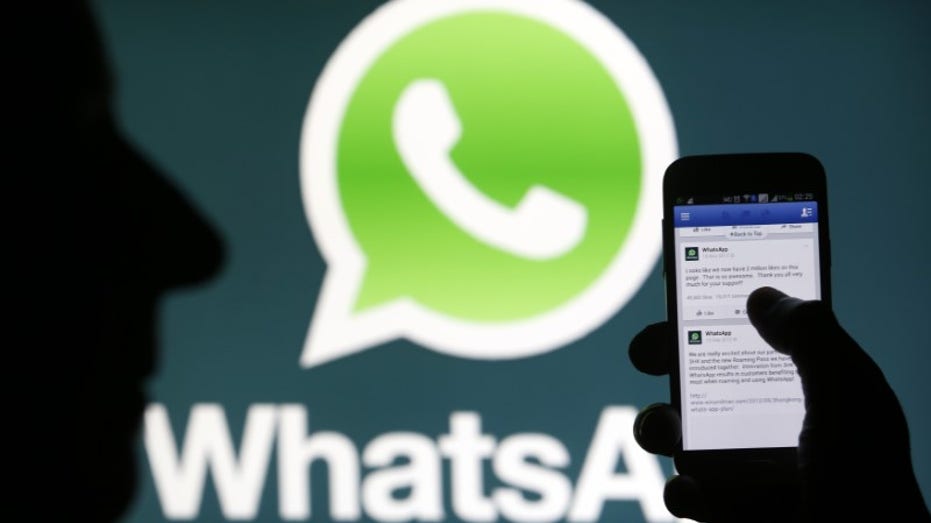
A Whatsapp App logo is seen behind a Samsung Galaxy S4 phone that is logged on to Facebook in the central Bosnian town of Zenica, Feb. 20, 2014. (REUTERS/Dado Ruvic)
The app has come under increasing scrutiny, however, because a number of cybercriminals have taken advantage of the app's convenience and encryption technology, highlighting the dangers of the app's unique vulnerabilities and capabilities on a global scale.
"For all of human history, people have been able to communicate privately with each other," WhatsApp leader Will Cathcart said in an interview with The Wall Street Journal published Wednesday. "And we don’t think that should go away in a modern society."
GET FOX BUSINESS ON THE GO BY CLICKING HERE
Just last month, two U.N. experts called for an investigation by the U.S. into information they received suggesting Amazon founder Jeff Bezos opened a malware-containing video message on WhatsApp that appeared to come from Saudi Crown Prince Mohammad Bin Salman's personal account in 2018. The alleged hacking made national news.
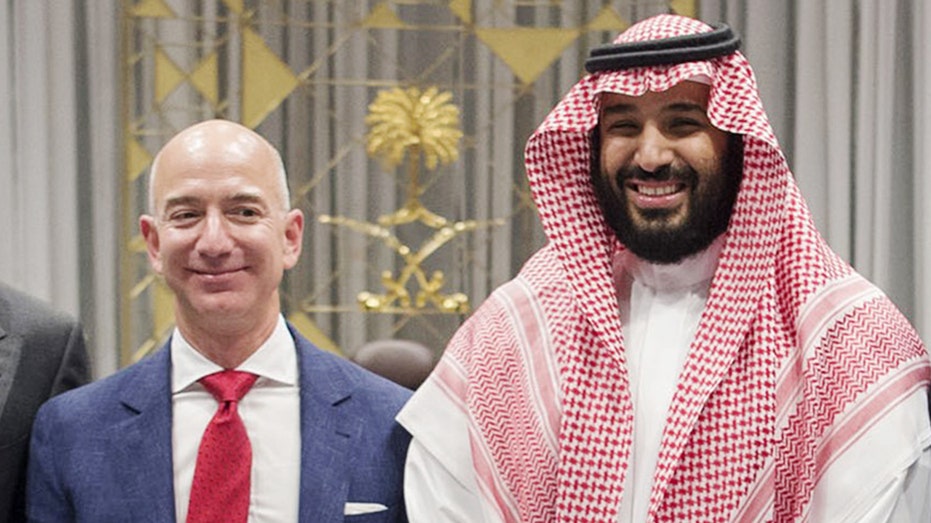
Deputy crown prince of Saudi Arabia and Defense Minister Mohammad bin Salman and founder of Amazon, Jeff Bezos. (Pool / Bandar Algaloud/Anadolu Agency/Getty Images)
WhatsApp has been linked to communication between mob criminals in India that led to brutal killings, kidnappings and the spread of false information. It is also known to be used by drug lords and dealers in Latin America. On the other hand, it has also allowed citizens and activists in crime-ridden countries, particularly in the Middle East, to communicate their stories with foreign countries.
The encryption technology that protects users' communications is part of the reason why the app has been banned in China, North Korea, Cuba, Iran, Syria and the United Arab Emirates (UAE).
"We know that the more we connect, the more we have to protect. As we conduct more of our lives online, protecting our conversations is more important than ever," WhatsApp wrote. "That is why every private message sent using WhatsApp is secured with end-to-end encryption by default."
READ MORE ON FOX BUSINESS BY CLICKING HERE




















